Sept. 15 to Oct. 15 marks National Hispanic Heritage Month, an annual celebration of Hispanic Americans’ contributions to America’s history, culture and ongoing progress as a nation. These contributions include many from Hispanic Americans with disabilities. In honor of the month, researchers in our Office of Disability Employment Policy recently took a deep dive into workforce data on Hispanic Americans’ representation in various industries and occupations. This is the latest in an ongoing series of data snapshots about different subgroups of disabled people; previous snapshots explored Black workers with disabilities, Women with disabilities and Asian Americans and Pacific Islanders with Disabilities.
Note: The Current Population Survey uses the terms Hispanic, Latino and Spanish interchangeably. This blog post includes anyone of Hispanic, Latino or Spanish origin.
Nearly 2.4 million working-age Hispanic adults (ages 16 to 64) in the United States have a disability.
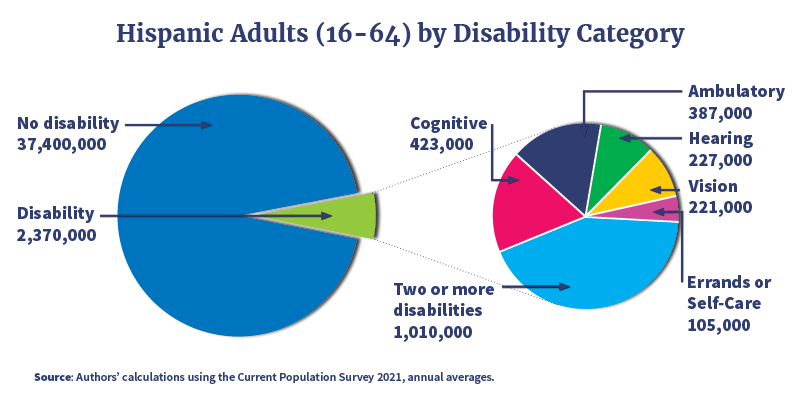
Includes civilian, non-institutionalized, Hispanic adults ages 16 to 64. We consider a person answering “yes” to any one of the six difficulty questions (hearing difficulty, vision difficulty, cognitive difficulty, ambulatory difficulty, self-care difficulty and independent living difficulty) to have a disability.
Source: Authors’ calculations using the Current Population Survey 2021, annual averages.
Hispanic women and men with disabilities (age 16+) are present in all stages of working life, with the highest numbers among workers age 55+.
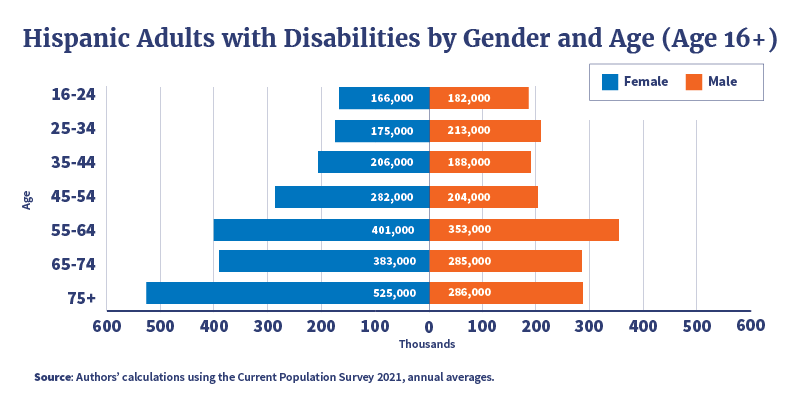
Includes civilian, non-institutionalized Hispanic adults with disabilities ages 16+.
Source: Authors’ calculations using the Current Population Survey 2021, annual averages.
Approximately 1.1 million Hispanic adults with disabilities (age 16+) are currently working or want to work.
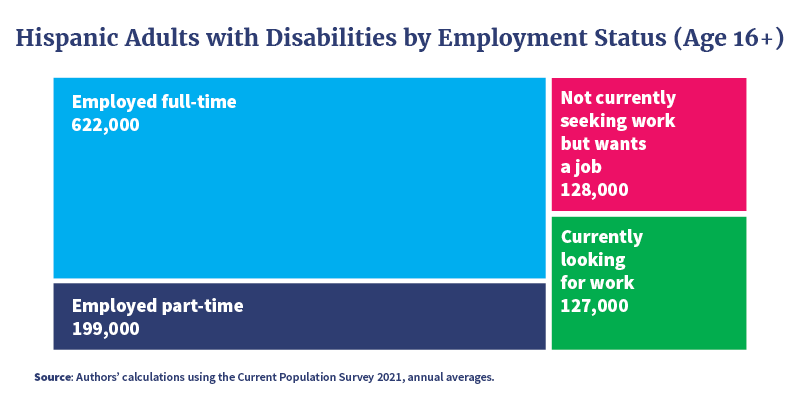
Includes civilian, non-institutionalized, Hispanic adults with disabilities ages 16+.
Source: Authors’ calculations using the Current Population Survey 2021, annual averages.
748,000 disabled Hispanic workers (age 16+) hold wage and salary jobs in the public, private or non-profit sectors, while 74,000 are self-employed.
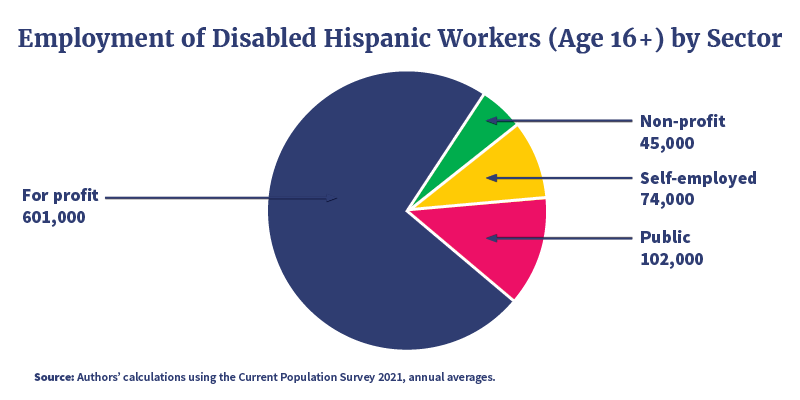
Includes civilian, non-institutionalized, Hispanic workers with disabilities ages 16+. The self-employed are those who work for profit or fees in their own businesses, professions, trades or farms. Unless otherwise specified, CPS estimates of the self-employed published by BLS reflect only people whose businesses are unincorporated. In most CPS estimates, self-employed individuals working in incorporated businesses are classified as wage and salary workers because, technically, the incorporated self-employed are paid employees of their corporation.
Source: Authors’ calculations using the Current Population Survey 2021, annual averages.
Hispanic adults with disabilities (age 16+) work in a range of industries, with the largest numbers in education and healthcare. They also hold a variety of occupations, including managerial positions, medical professions, retail, production and teaching.
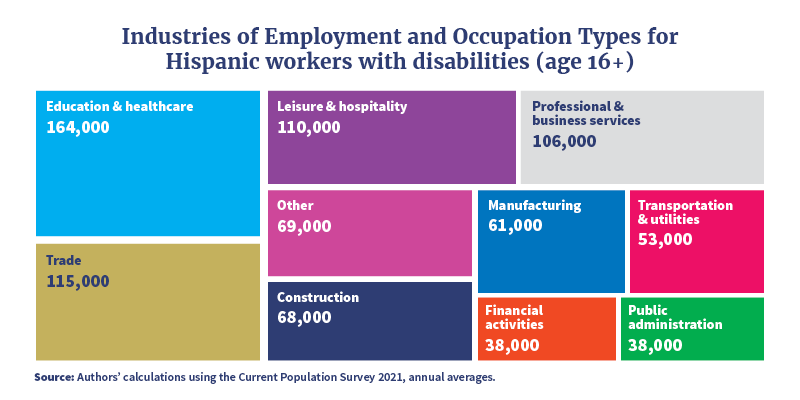
Includes civilian, non-institutionalized, Hispanic adults with disabilities ages 16+.
Source: Authors’ calculations using the Current Population Survey 2021, annual averages.
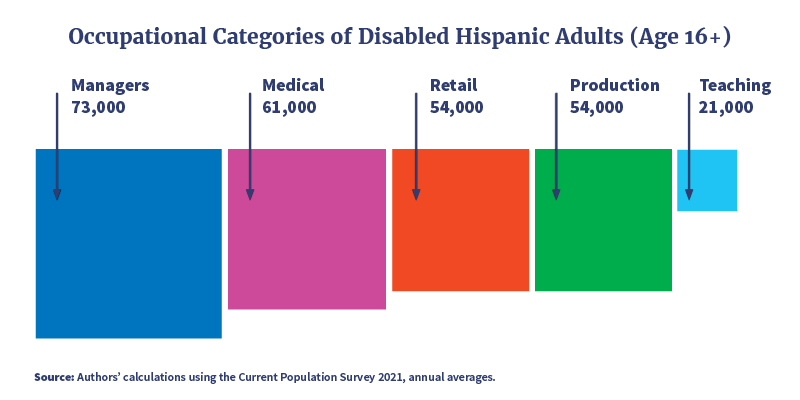
Notes: Includes civilian, non-institutionalized, Hispanic adults with disabilities ages 16+.
Source: Authors’ calculations using the Current Population Survey 2021, annual averages.
The Office of Disability Employment Policy promotes policies and coordinates with employers and all levels of government to increase workplace success for people with disabilities. ODEP's mission is to develop and influence policies and practices that increase the number and quality of employment opportunities for people with disabilities. For more information please visit: dol.gov/odep.
Jackson Costa and David Rosenblum are both senior economists in the department’s Office of Disability Employment Policy.

 U.S. Department of Labor Blog
U.S. Department of Labor Blog